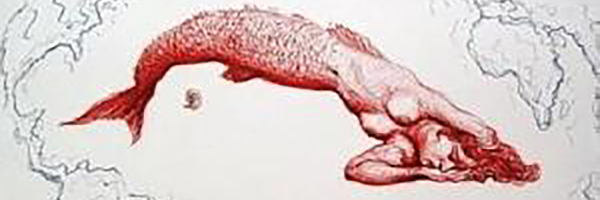Why is Cuba in the heart of the world?
Fidel Castro, Closing speech at the 13th Congress of the Cuban Workers Union. August 29, 1966
Back in March 2014, at the dawn of what would become the counterrevolutionary project Cuba Posible, one of its regular contributors, in an interview with a Miami correspondent on the Island, advised Cuba in its relations with the United States: “it is better, for the weakest actor, to adopt changes that make it fit or enter into a bigger puzzle where the American leadership predominates.” The interviewee lamented that Cuban leaders “do not feel comfortable with the world that way and are doing everything they can to change it.”
Actually, the asymmetry of Cuba’s relationship with a neighboring country that has 30 times its population and is the most important economic and military power in the world is such, that the proposal of joining the yoke and losing the star of Marti’s ideas on the forehead, accepting the world as it is and renouncing to change it, could seem attractive to some who think more like Americans than Cubans. Plattism and geographic fatalism have their share in national history, something that is taught, not in American universities, but in the national elementary school.
Cuban children are also taught, although some mislearn it or pretend to forget it as adults, that until 1959 Cuba was a country with a monoculture (sugar cane), on American-owned land located in its own territory; that it exported only one product (sugar) to only one market: the United States. The American companies had bought the best lands at the price of pennies per hectare, after a war in which their government intervened in an opportunistic manner, when the Cubans had cornered the largest army that Spain had ever had in America.
From the beginning of that struggle for the independence of Cuba and Puerto Rico, José Martí, its main organizer, would write about the U.S. intention to meddle in uncomfortable matters: “It is a world that we are balancing; it is not only two islands that we are going to liberate,” and he would also define that what he did and would do was to “prevent in time with the independence of Cuba that the United States spread through the Antilles and fall, with that force more, on our lands of America.”
Martí was a man who wrote with a universal vision about the struggles of peoples in the most diverse environments: His first literary work (Abdala) is set in the Middle East, and it is difficult to find a people defending their sovereignty that has not had Marti’s pen at its side. From Ireland to Vietnam, as the original peoples of what he called Our America, had in him the attentive and deep look on their resistances, as well as the workers of Chicago that the working world honors every May 1st.
An exemplary follower of Marti’s ideas, Fidel understood that limiting the actions of the Revolution in the international arena to denouncing U.S. aggressions, without at the same time trying to change the environment that supports them, would be suicidal for Cuban revolutionaries. Because of its humanist and universal vision, he also understood that this enormous asymmetry can only be balanced with an active and founding participation in the international arena. For that reason, far from conceiving the relations between the United States and Cuba only as a bilateral problem, or reducing them to the issue of the economic blockade, he always had an integral and global vision of them.
From the nationalizations and the Five Points of the October Crisis to the Baraguá Oath, passing through the battles against the extraterritoriality of Title III of the Helms-Burton Act, against the Bush Plan, for the return of the child Elián and the freedom of the Five Cuban anti-terrorists unjustly condemned in the United States, the Commander made of the anti-imperialist struggle an instrument of social cohesion with the people as protagonist, a reason for popular mobilization in Cuba and of the international public opinion that would impose a high political cost to the adversary.
From aid to national liberation movements and the massive training of professionals for the Third World to the sending of medical brigades and the export of competitive biotechnological products, including its recent and very effective vaccines against COVID-19, Cuba’s role in the world has been and is a thousand times greater than what could be expected from a small resistant country on the borders of the largest empire in history.
U.S. imperialism is not Cuba’s problem, it is humanity’s problem. U.S. policies not only threaten Cuba, they threaten the very survival of the human species. The emergence of new and growing responses to those policies, recognize the role the island has held as a symbol of resistance to that hegemonic pretension.
This is what explains the impressive, diverse and supportive reception that the delegation headed by Cuban President Miguel Diaz-Canel has just received in Algeria, Russia, Turkey and China, shortly after the 30th overwhelming rejection of the U.S. economic blockade against Cuba at the UN, or the almost unanimous disqualification of a Summit of the Americas without Cubans. It is not only that these countries support Cuba, it is also that by supporting it they know that they are supporting themselves, at a critical time when Washington’s orders are no longer obeyed even in Saudi Arabia.
Once again, Martí summarizes it: “Cuba does not go around the world begging, it goes around as a sister, and by saving itself it saves, and acts with the authority of such. Friends and enemies know it, as we should know here that to maintain that authority with which the word Cuba admires the world, the decisive thing is what we do with that support, on this island and beyond, those of us who call ourselves Cubans.

 Iroel Sánchez
Iroel Sánchez